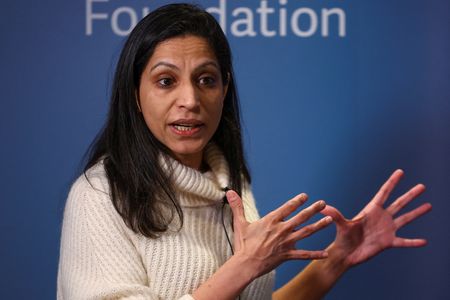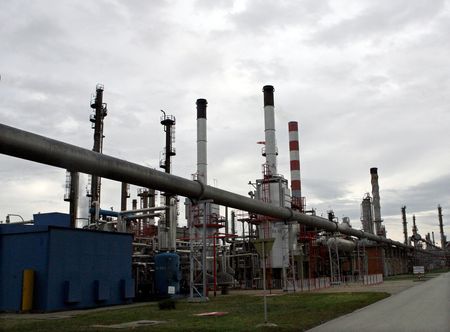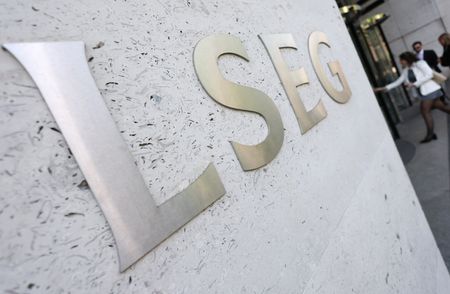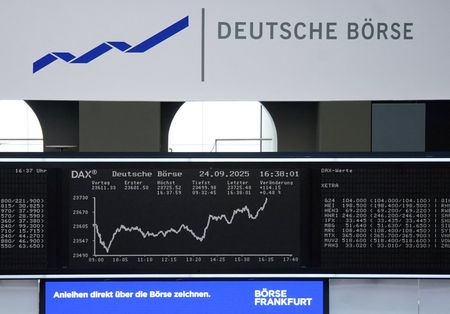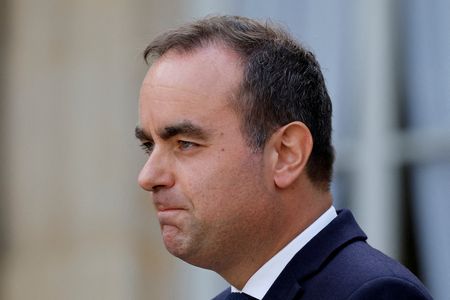LONDON (Reuters) -Bank of England interest rate-setter Swati Dhingra said Britain’s high inflation rate is likely to ease off and the central bank should move more quickly to cut borrowing costs.
“The effects of the shocks driving the UK’s current high inflation relative to Europe will fade, and thus, we should not be overly cautious about cutting interest rates,” Dhingra wrote in a column published by The Times newspaper on Friday.
She was one of two members of the nine-strong Monetary Policy Committee who this month sought to cut the BoE’s benchmark Bank Rate by a quarter of a percentage point. The other seven decided to keep rates on hold at 4%.
“The difference in inflation between the UK and our continental neighbours can be largely explained by administered prices and global commodity shocks. These should pass,” Dhingra said in her newspaper column.
“We can afford to cut rates further and not put additional strain on economic growth without threatening the inflation target,” she wrote.
Britain has the highest inflation rate among Group of Seven economies, at 3.8% in August, and the BoE thinks it will peak at 4% in September before falling back to the central bank’s 2% target only in the spring of 2027.
However, there are also signs that Britain’s jobs market is stumbling as employers cut hiring.
Dhingra has consistently been more in favour of rate cuts than the majority of the MPC’s members.
Her latest comments contrasted with those of fellow MPC member Megan Greene who on Wednesday warned that risks had grown that inflation in Britain will prove stronger than the BoE has forecast, meriting a cautious approach to further rate cuts.
Governor Andrew Bailey, also on Wednesday, reiterated his view that borrowing costs are likely to fall further but when and by how much depended on the path of inflation.
(Writing by William Schomberg; Editing by Jon Boyle and Timothy Heritage)

